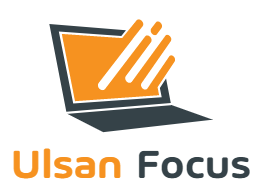Ukraine-Russia crisis and rising fear of war: All you need to know

Chinese President Xi Jinping has backed Russian counterpart Vladimir Putin in his standoff with the West over Ukraine as the two leaders met before the opening ceremony of the Winter Olympics in Beijing.
The leaders used a joint statement to call out what they called a “minority on the world stage” for advocating “unilateral approaches to resolving international problems and resort to military policy.”
Meanwhile, the leaders of European Union powerhouses France and Germany announced plans to head to Moscow and Kyiv soon for talks aimed at easing tensions.
Here are things to know about the international tensions surrounding Ukraine, which has an estimated 100,000 Russian troops massed along its borders.
Putin got the support of his Chinese counterpart amid fears in the West that Moscow is preparing for military action against Ukraine. Putin met with Xi before the opening ceremony of the Winter Olympics in Beijing and the leaders issued a joint statement highlighting what it called “interference in the internal affairs” of other states, as Russia amasses troops on its border with Ukraine.
Read | India abstains from procedural vote ahead of discussion on Ukraine at UN Security Council
“Some forces representing a minority on the world stage continue to advocate unilateral approaches to resolving international problems and resort to military policy,” it read, in a thinly veiled reference to the US and its allies. The meeting came amid fears in the West that tensions between Russia and Ukraine could spill over into armed conflict.
On Thursday, the US accused the Kremlin of an elaborate plot to fabricate an attack by Ukrainian forces that Russia could use as a pretext to take military action against its neighbor.
Diplomatic moves to ease the crisis are set to continue next week when French President Emmanuel Macron heads to Moscow and Kyiv for talks. Macron is following a French tradition of striking a separate path from the United States in geopolitics, as well as trying to make his own mark on this crisis and defend Europe’s interests. Macron spoke by phone to US President Joe Biden on Wednesday to update Washington on his diplomatic push.
And on Thursday night the French leader discussed with Putin and Ukrainian President Volodymyr Zelenskyy ways to “identify elements that could lead to de-escalation,” and “conditions for strategic balance in Europe, which should allow for the reduction of risks on the ground and guarantee security on the continent.” While France is a major player in NATO and is moving troops to Romania as part of the alliance’s preparation for possible Russian action, Macron has also been actively pushing for dialogue with Putin and has spoken to him several times in recent weeks.
Read: Ukraine crisis: The world according to Vladimir Putin
The two will hold a one-on-one meeting Monday, Macron’s office said Friday. Macron is not the only European leader heading east. German Chancellor Olaf Scholz will visit Ukraine and Russia in mid-February, adding to diplomatic efforts to resolve the crisis centering on Russian troops massed near Ukraine’s borders. Government spokesman Wolfgang Buechner said Friday that Scholz will travel to Kyiv on February 14 and Moscow on February 15.
The trip will follow a previously planned meeting in Washington on Monday with Biden. Buechner said the German government is consulting with France and Poland on a meeting between the leaders of the three countries, but a date hasn’t yet been set. He said that, on Thursday, Scholz will welcome the leaders of the three Baltic states of Lithuania, Latvia and Estonia to the chancellery.
Foreign Ministry spokeswoman Andrea Sasse said that Foreign Minister Annalena Baerbock will visit Ukraine on Monday and Tuesday, a trip that will include a visit to the “contact line” with rebel-held areas in eastern Ukraine.
Poland’s president was the only European Union leader to attend the Winter Olympics opening Friday, in what his office said was a bid to maintain good ties with China and lobby for an easing of Russia-Ukraine tensions.
Read: ‘Horrific’ destruction, casualties if Russia invades Ukraine, says top US army general
President Andrzej Duda is scheduled to meet with Chinese leader Xi Jinping on Sunday, his office said, but is not scheduled to meet Russian President Vladimir Putin, who also is in Beijing. Other EU leaders have followed the United States, Britain, Australia and Canada, among others, in a stated or unstated diplomatic boycott of the Games due to China’s human rights record — while allowing their athletes to compete. Duda’s foreign policy advisor, Jakub Kumoch, has said the president wants to seize “certain diplomacy chances” that the gathering of many leaders in Beijing.
“The goal of these talks is to encourage the interlocutors to play an active role in leading to Russia-Ukraine talks,” Duda’s press office says. Amid the simmering tensions between their two countries, five-a-side soccer teams from Russia and Ukraine face one another in the semifinals of the Futsal European Championships in Amsterdam. European soccer’s governing body, UEFA, has ensured that Ukrainian and Russian teams aren’t drawn to play one another since 2014, the year Russia annexed Crimea.
But in a written statement UEFA said that the measure to keep teams apart “for obvious reasons cannot apply to the entire knockout stages of tournaments like the UEFA Futsal EURO 2022.”
“UEFA expects fair play by the two teams, on and off the pitch,” the organisation said, adding that local organisers of the tournament in the Dutch capital are working “to ensure that the event will take place safely and, in this respect, is working on implementing specific security plans.”
ALSO READ | Ukraine crisis updates: What to know amid the fears of war
Watch | Russia-Ukraine Crisis: What Triggered Russia-Ukraine Conflict

“평생 사상가. 웹 광신자. 좀비 중독자. 커뮤니케이터. 창조자. 프리랜서 여행 애호가.”
